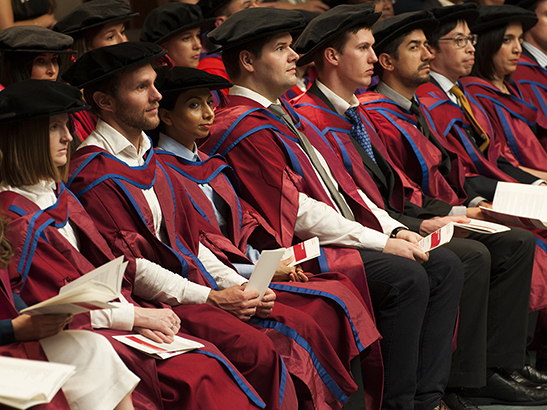
Image: Student reading a book in the library
Radical changes are taking place in the higher education sector this year. The Higher Education Council for England (HEFCE) – the body which previously oversaw research and teaching in higher education, and funded these activities on behalf of the English government – has been disbanded, with responsibility for teaching now falling under the remit of a new regulator called the Office for Students (OfS).
The OfS will be the regulator for the whole range of teaching and learning providers in UK academia: from large multi-faculty universities delivering both undergraduate and postgraduate courses, to specialist postgraduate-only institutions like the ICR.
We are all currently going through the registration process ready for the launch of the new OfS register in August 2019.
The OfS is challenging teaching providers to articulate the value of the higher education they provide, and to help make the case for why individual students and the public, via Government support, should invest in this.
Over the last decade, the higher education sector has become very good at identifying and articulating the value of its research – demonstrating its huge impact on society in economic, social and cultural terms.
The sector now needs to do the same for teaching, communicating the value of the education it provides both for individual students and society.
So the ICR's second annual teaching Week (see our content from Teaching Week 2017) is an opportunity to reflect on the value of the education we provide, and how we communicate that benefit more widely. We aim to educate and train the next generation of researchers and clinicians. How do we know we are meeting these aims?
The ICR is committed to educating and training the next generation of researchers and clinicians.
Our alumni
Over the past 12 months, one of our focuses has been on gathering data on the career destinations of our student alumni, and another on creating an alumni community.
We now know that 72 per cent of our science students who graduated between 1980 and 2017 are still in research careers, and 36 per cent of these are leading a research team. 23 per cent of all our research student alumni graduating between 1980 and 2005 are now professors.
So our students have gone on to be leaders in their fields, exerting a huge influence on the cancer research community in the UK and across the world. That’s quite an impact.
They are also positive about their experiences as students at the ICR. One alumnus, for example, told us:
“I loved the interdisciplinary environment. I lived with physicists, chemists and biologists. I interacted with nurses, clinicians, radiographers and patients, and with people from around the world. I really felt like I was at the centre of a real culture of discovery. It was an inspiring environment – and a very sociable one too.”
Current and recent students
We have also gathered feedback from our current and more recent students via national postgraduate experience surveys. We know that half of the UK’s oncologists were trained on our MSc in Oncology – which highlights the importance of this course to the wider community of clinicians, and ultimately to people with cancer.
Last year, our taught course students reported an extremely high overall satisfaction rate of 99 per cent, and were highly positive about the quality of our teaching. Some 88 per cent of our research degree students reported overall satisfaction with their degree, and students were particularly positive about the quality of training and resources available.
Students’ comments included, “I think the ICR is very well equipped and if there is some extra piece of equipment one wants to get access to it’s possible to do it through the many collaborations the ICR has,” and “I have learned a lot since starting at the ICR, and have definitely developed my research skills.”
By supporting a PhD studentship, you could help us advance personalised prostate cancer treatment.
Teaching excellence
The excellence of our teaching has already been recognised by the award of institution-specific funding by HEFCE.
This funding – given to only a small number of higher education institutions – recognises the higher cost and distinctive nature of specialist higher education providers with global impact, like the ICR, and the public value that these institutions bring to the sector.
It is pleasing to see evidence of our teaching excellence also borne out through the influence of our alumni on cancer research across the UK and the world, and ultimately in improving the lives of people with cancer. And it’s great to know how positive our students are about their experiences here.
Our sector-leading positions in research and in collaborating with industry are already well-known. This excellence applies to our teaching, too.
